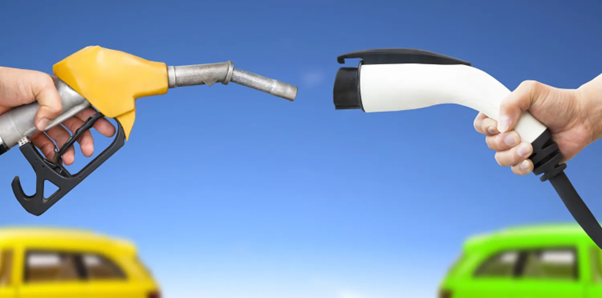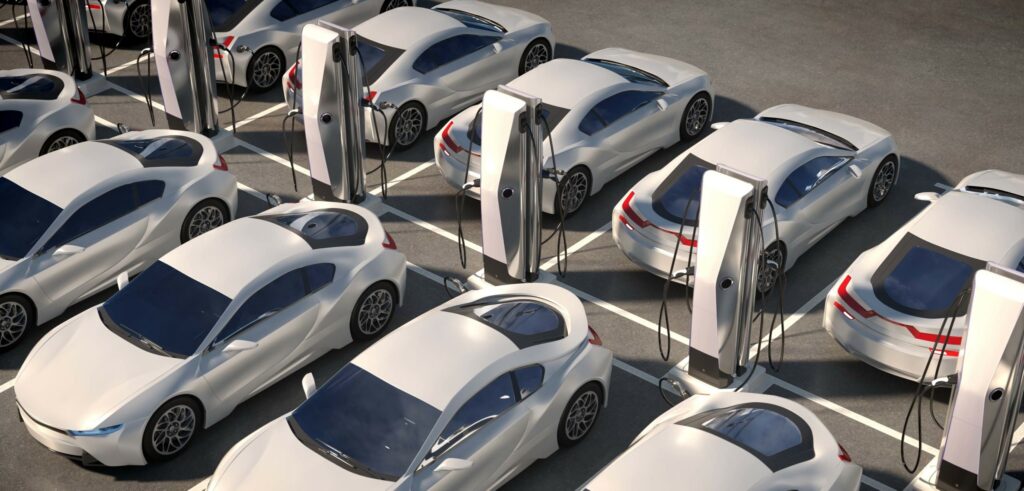EV Charging Costs in AA Report for October 2024 Overview
As we are all persuaded to shift towards electric mobility, understanding the costs associated with charging electric vehicles (EVs) is essential for current and prospective EV drivers. The EV Charging Costs in the AA Report for October 2024 sheds light on the evolving landscape of EV charging prices while providing insights into fuel costs. Let’s dive into the details and see what this means for us as drivers.
Understanding the EV Charging Landscape
Current Charging Costs
Electric vehicle charging costs can be confusing, especially with various rates depending on the type of charger used. Here’s a snapshot of the average charging costs and what they mean for our wallets:
- Domestic (Home) Charging (Up to 7kW):
- Average std Tariff Cost: 24p/kWh
- Cost to Add 80% Charge: £9.60
- Pence per Mile: 5.42p
- Slow (Supermarket etc) Charging (Up to 8kW):
- Cost: 49p/kWh
- Cost to Add 80% Charge: £19.60
- Pence per Mile: 11.07p
- Fast Charging (8-49kW):
- Cost: 59p/kWh
- Cost to Add 80% Charge: £23.60
- Pence per Mile: 13.33p
- Rapid Charging (50-149kW):
- Cost: 73p/kWh
- Cost to Add 80% Charge: £29.20
- Pence per Mile: 16.50p
- Ultra-Rapid Charging (+150kW):
- Cost: 77p/kWh
- Cost to Add 80% Charge: £30.80
- Pence per Mile: 17.40p
As you can see, charging at home remains the most economical option.
Trends in Public CHARGING COSTS
In October, the AA noticed some interesting trends in public charging prices:
- Peak Times: Charging at peak times on slow chargers has increased by 11p/kWh, now at 69p/kWh. UP
- Fast Chargers: Interestingly, fast charging costs decreased by 2p/kWh, making it slightly more affordable. DOWN
- Ultra-Rapid Stations: This category saw a nominal increase of 3p, reflecting a broader trend of fluctuating costs.
Comparison with Petrol Prices
In contrast to the fluctuating charging costs, average petrol prices fell slightly in October to 134.50p per litre. This brings the cost of refuelling to approximately £43 for a full tank, averaging around 11.76p per mile. However, with petrol prices starting to creep up again as we move into winter, it’s essential to consider the long-term value of electric vehicles.

Factors Influencing Charging Costs
Domestic Energy Prices
One of the primary drivers behind rising EV charging costs is the uptrend in domestic energy prices. As our homes begin to see increased energy bills, this inevitably trickles down to charging costs, particularly for those who depend on public Charging.
The Role of Government Investment
While the immediate experience of EV drivers without a home charging setup may be frustrating, the introduction of a £200 million investment for charging infrastructure is a welcome development. This funding aims to expand and enhance the charging network across the UK, ultimately making life easier for all EV owners.
Nearly Half of Councils Achieve Compliance with EV Charger Regulations
According to research by Drax Electric Vehicles, nearly half (47%) of local councils in the UK are fully compliant with the new Public Charge Point Regulations (PCPR) set by the government. Drax reached out to 210 local authorities, and over one in five (21%) admitted to having zero compliance. Additionally, 50 councils reported facing challenges such as funding gaps and technical hurdles.
The PCPR regulations took effect on November 24, 2024, to ensure a consistent and positive consumer experience using public EV charge points across the UK.
The new regulations stipulate that all new public charge points must have a capacity of 8kW or more, and all existing charge points with a capacity of 50kW or more must support contactless payment. Charge points are also required to ensure 99% reliability for rapid Charging, provide a free 24/7 helpline, and implement the Open Charge Point Interface (OCPI) for greater accessibility. Beginning in 2025, charge point operators must also allow drivers to connect through at least one roaming provider.
The findings show a regional disparity in compliance, with 56% of local authorities in England fully meeting the requirements, compared to 43% in Wales and only 24% in Scotland.

More than two-fifths (42%) of councils reported specific challenges that hindered their ability to achieve full compliance. These challenges included technical difficulties in updating older charge points to support contactless payment systems due to outdated hardware and issues with signal strength.
Additionally, insufficient funding for necessary infrastructure upgrades and managing the reliability of charge points and helpline services contributed to the difficulties.
Before the November 24 deadline, Drax Electric Vehicles called for increased collaboration among councils, the private sector, and the UK Government.

How to Save on Charging Costs
Timing Your Charging
If you’re charging at a public station, consider using it during off-peak hours to save substantially on costs. Here’s a breakdown of peak versus off-peak rates:
- Slow Off-Peak: 44p/kWh
- Slow Peak: 69p/kWh
- Fast Off-Peak: 75p/kWh
- Fast Peak: 79p/kWh
By charging during off-peak times, we can significantly reduce our bills!
Charging at Home
If possible, establishing a home charging solution will guarantee lower costs. Domestic rates are considerably cheaper, making daily Charging the most economical option. See Octopus Energy EV Tariff or British Gas EV Tariff both offer low rates between midnight and 5 am and are reduced or free at certain times during Sundays,
Utilising Public Charging Wisely
For journeys requiring public chargers, we should always check the rates available at various stations. Apps and online platforms can help us find the most cost-effective options nearby.
The Future of EV Charging
A Stable Future Ahead?
While price increases are disheartening, the stability of charging costs compared to the volatility of petrol prices could be a silver lining. We can expect less fluctuation in the costs associated with charging than with traditional fuel.
The Importance of Infrastructure
The growing commitment from both the government and private sectors towards expanding charging infrastructure shows a positive trend. It’s a good sign that EV adoption could seamlessly integrate into our daily lives.
Conclusion
Navigating the world of electric vehicle charging doesn’t have to be overwhelming. By staying informed about prices, leveraging off-peak Charging, and investing in home charging options, we can maximise our savings and enjoy the many benefits of electric driving. The AA’s EV Recharge Report highlights the complexities of pricing, but it also underscores the infrastructure developments that are paving the way for electric vehicles in the UK.
Check out the very best EV and Hybrid deals from First Vehicle Leasing.

FAQs
1.
What are the average charging costs for EVs in the UK?
Charging costs vary by type. Domestic rates are around 24p/kWh, while public Charging can range from 49p to 77p/kWh, depending on the speed.
2.
How can I reduce my charging costs?
Charging during off-peak hours, using home charging solutions, and shopping around for public charging prices can help reduce costs.
3.
Are EV charging costs stable compared to petrol prices?
Generally, EV charging costs are generally more stable and predictable than petrol prices, which fluctuate frequently.
4.
What should I consider when choosing a charging station?
To find the best option for your needs, consider costs, speed of Charging, and location convenience.
5.
Will government investments improve charging infrastructure?
Yes, increased government investment will likely enhance and expand the charging network, making it easier for EV owners to find accessible charging points.
Sources AA Website, Drax, pictures AI-Generated, FVL website or Shutterstock
- The Peugeot 408: A Premium Hybrid That Stands Out - December 18, 2024
- UK Auto Industry Challenges Amid EV Transition - December 11, 2024
- EV Charging Costs in AA Report for October 2024 - December 6, 2024

